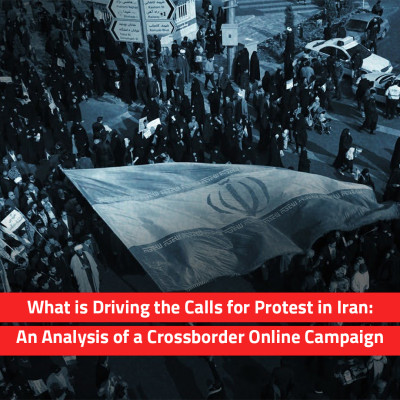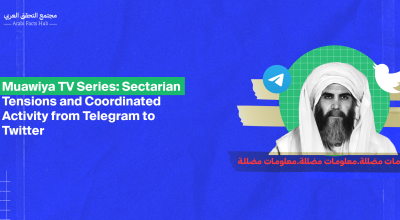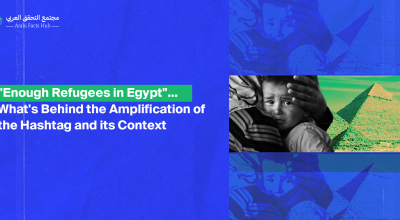“The Electronic Committees have arrived”
Since the announcement of a Saad Lamjarred concert in the resort town of Sharm El Sheikh, Egypt, calls opposing the concert emerged. Feminist initiative “Speak Up”, involved in supporting victims of violence, took the stage as one of the most prominent groups objecting to the concert. In previous years, Speak Up played a significant role in defending the cause against gender-based violence, most importantly in the 2014 Farimont sexual assault case which came to light in 2020, and where the defendants were released in 2021 “for insufficient evidence”, while the real reason was their being from influential families in Egypt. Speak Up posted about the organizers of the Saad Lamjarred concert on 29 December 2022, stating that they are the same organizers of his 2016 concert. Speak Up mentioned that the organizers had failed to take into account the security of the tourists and their wellbeing, saying “don’t bring someone with 4 accusations of rape, an open court case in France with a verdict pending at any moment, someone who has fled prosecution in the US, have him hold a conference and a concert, celebrate his presence and claim it is good for tourism.”
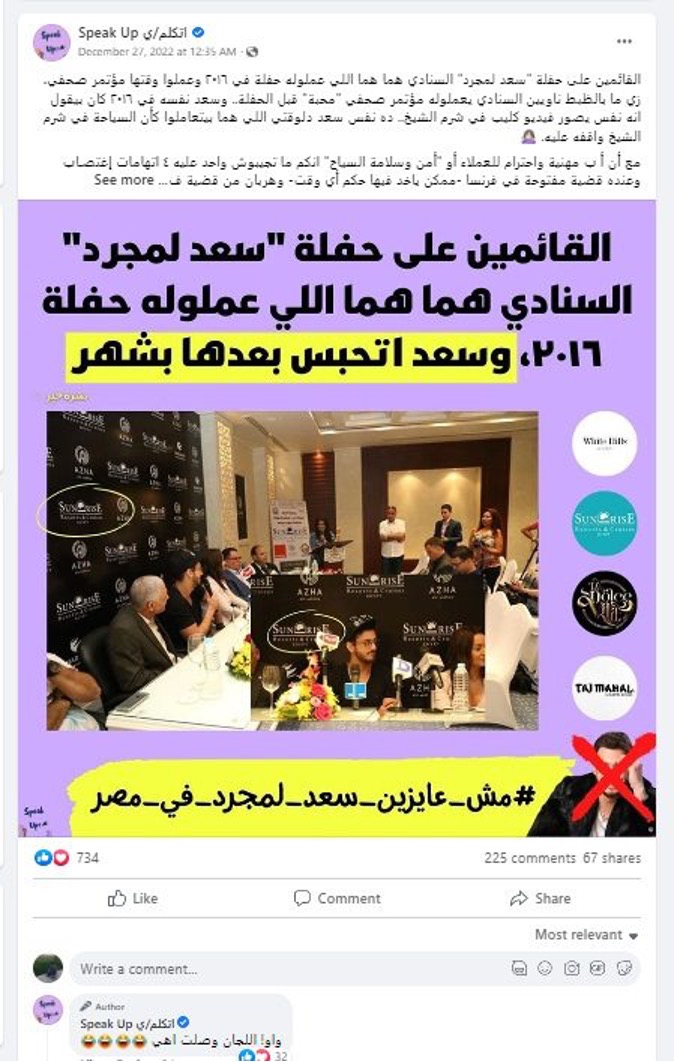
Later, responses defending Lamjarred that had a common tone started to appear, prompting Speak Up to comment “Wow, the Electronic Committees have arrived!”.
Egyptians coined the term “Electronic Committees” in 2011 to refer to virtual accounts that they suspect are not owned by regular individuals but are rather managed by security agencies or groups opposing to a popular concept that has grabbed the attention of a large number of people. “Electronic Committees” is a term similar to “Electronic Flies” that emerged for the first time in the Gulf.
We have taken a closer look at the accounts of Lamjarred defenders, noticing that they have avatars that look like they are of real people, however, the likelihood of these pictures having been stolen from their real owners is high, especially since some of these accounts have no cover photos.
These accounts, which were created within a narrow timeframe, do not interact with any other accounts. Some show a friends list and some have it hidden. They also try to add real people as friends in order to give the appearance of having real ties and add a false sense of identity.
What these accounts have in common is that they have left comments, recommendations and reviews on certain Facebook pages. These pages are of private travel and tourism agencies, restaurants, furniture retailers, barber shops, and Gym equipment sellers. This indicates that these accounts could be part of An advertising marketing network that relies on cheap promotional tricks for the benefit of entities and companies that wish to use that service. These accounts flood commercial pages with fake recommendations and reviews signing to the quality of the provided service in order to exploit an interest by a large segment of Egyptians in reading recommendations for products, services, and hotels.
These accounts with fake reviews on the pages shown below, are the same that were active in defending Saad Lamjarred and criticized Speak Up’s opposition to his concert.

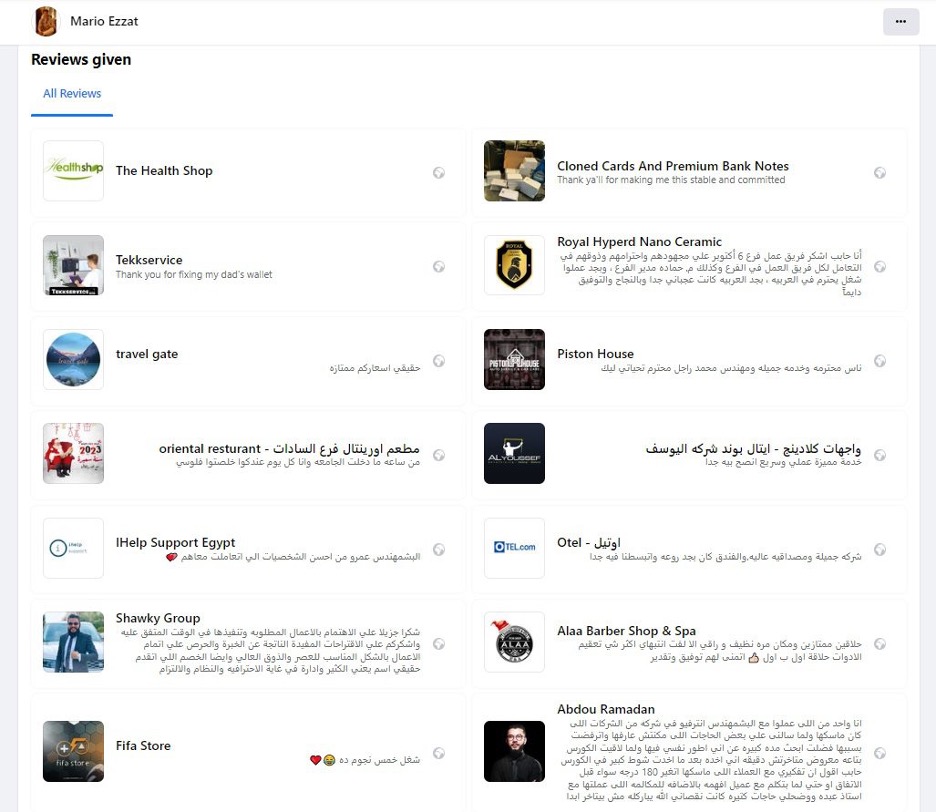
Arabi Facts Hub has monitored dozens of accounts that are managed and made to interact in the same manner. Another post by Speak Up has helped reveal more of these accounts. The post criticized a famous hotel brand in Sharm El Sheikh for hosting Lamjarred’s concert. A short time after, dozens of accounts responded with repeated and similar content.



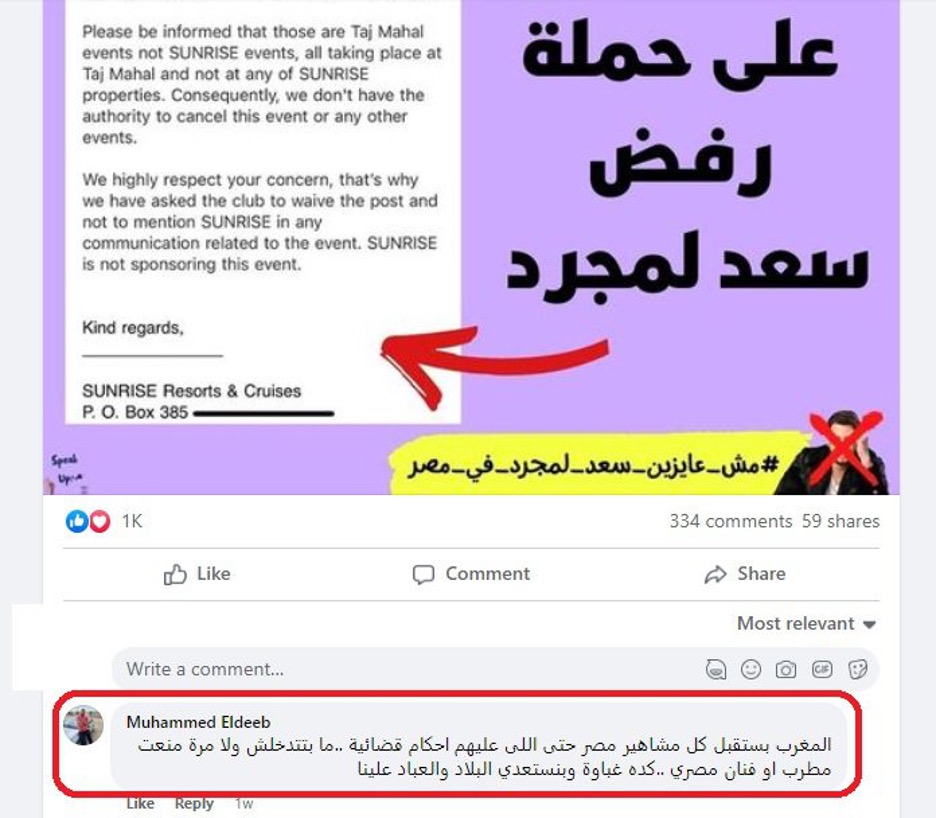



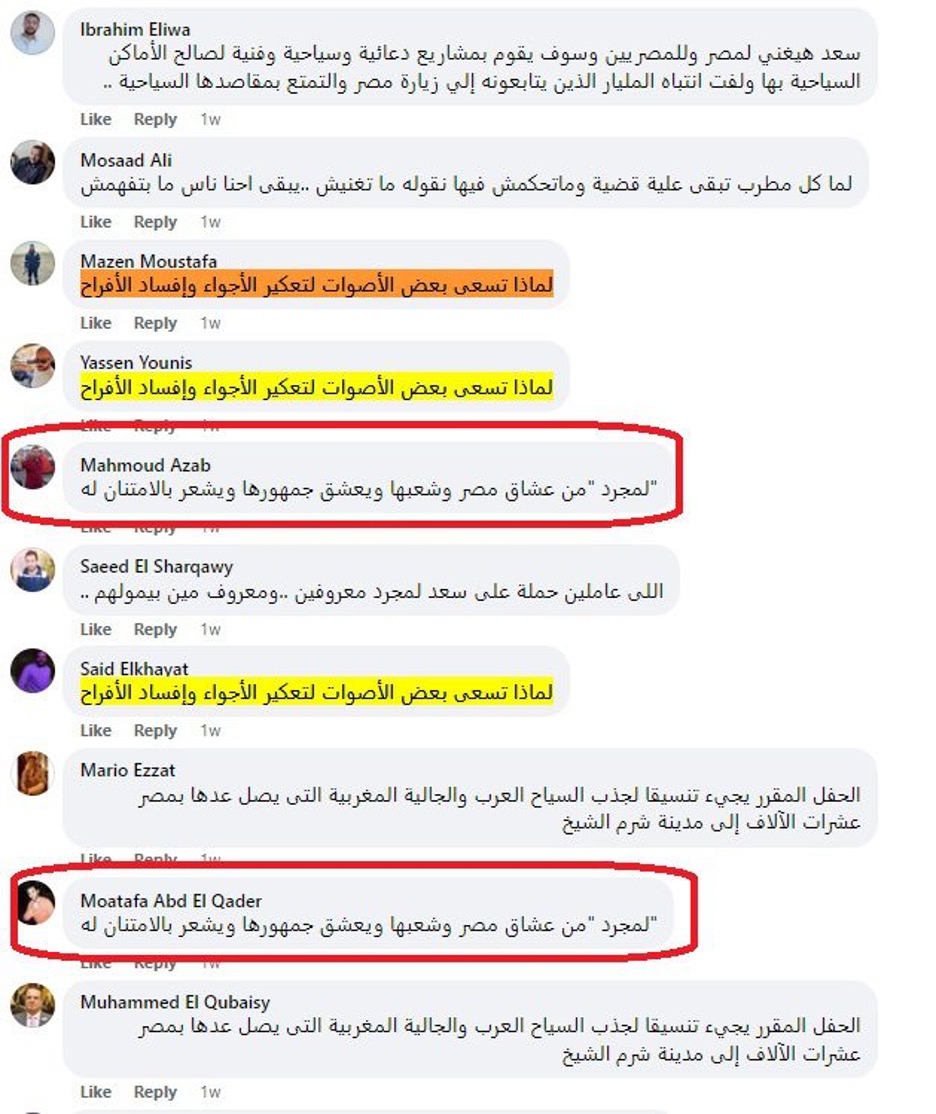
How is the counter campaign led?
There is a network of dozens of fake accounts that operated in concert to defend Saad Lamjarred and the holding of his event in Egypt. The accounts are most likely linked to an advertising marketing network, as they have previously participated in posting recommendations for commercial products, tourism companies, services, and hotels. The entity owning these accounts attempted to avoid detection by Facebook or individuals, by adding friends whose accounts appear to be real. Those in charge of these accounts seized personal photos of real people to use in falsifying the identity of the accounts, and duplicate content was also detected in comments defending Saad Lamjarred.



